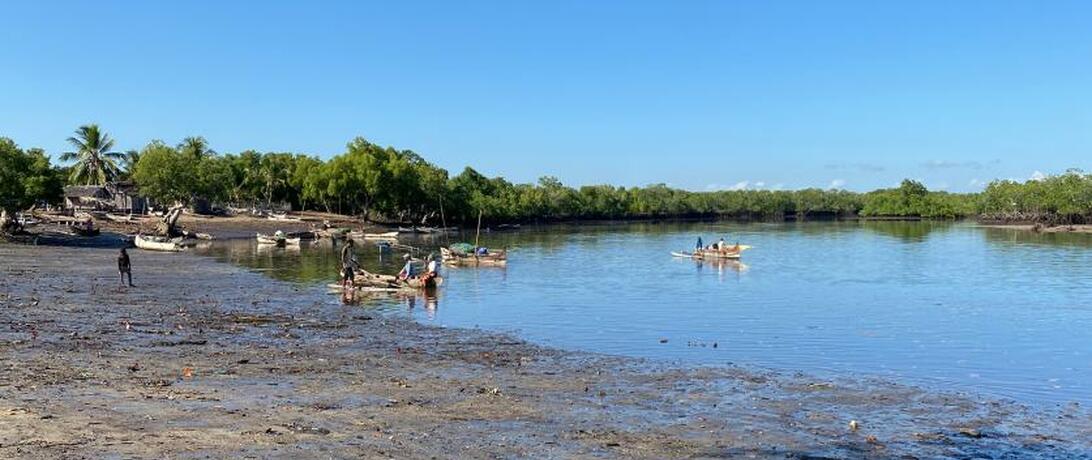The team traveled to multiple fishing communities around Tshimpaka Bay on Madagascar's northern coast to learn about community-led fisheries management measures, governance structures, and Marine Protected Areas (MPAs) to assist with the planning process for a proposed MPA in the waters off Zeila. This was a unique opportunity for these fishing communities to discuss their shared goals for their rich marine resources.
The Somaliland group visited several Malagasy villages to learn what a successful MPA looks like, best practices for its establishment, and how to derive the most benefit to the environment and the community. The Zeila MPA would be the first in Somaliland and would serve as a model for regional marine planning. The team also benefited from witnessing how each community enforces its customary bylaws to enforce fishing management measures.
The team participated in hands-on activities as well. In Anadimmakafito, the group visited a mangrove forest that was previously cleared for charcoal and is now protected. The local community saw that the short term economic gains from the charcoal did not offset the losses they experienced when fish stocks declined as a result of the cleared forest, so they initiated a grassroots effort to restore the mangroves and protect their fisheries. Participants learned about the significance of mangroves, their environmental benefits, and how they are planted in restoration areas. In Antsakoamanondro, the team witnessed a transfer ceremony in which the government handed over the coastal management plan to the community to implement, marking a great achievement for the community and showing the Somali visitors what is possible with effective communication and engagement between the community and the government.
